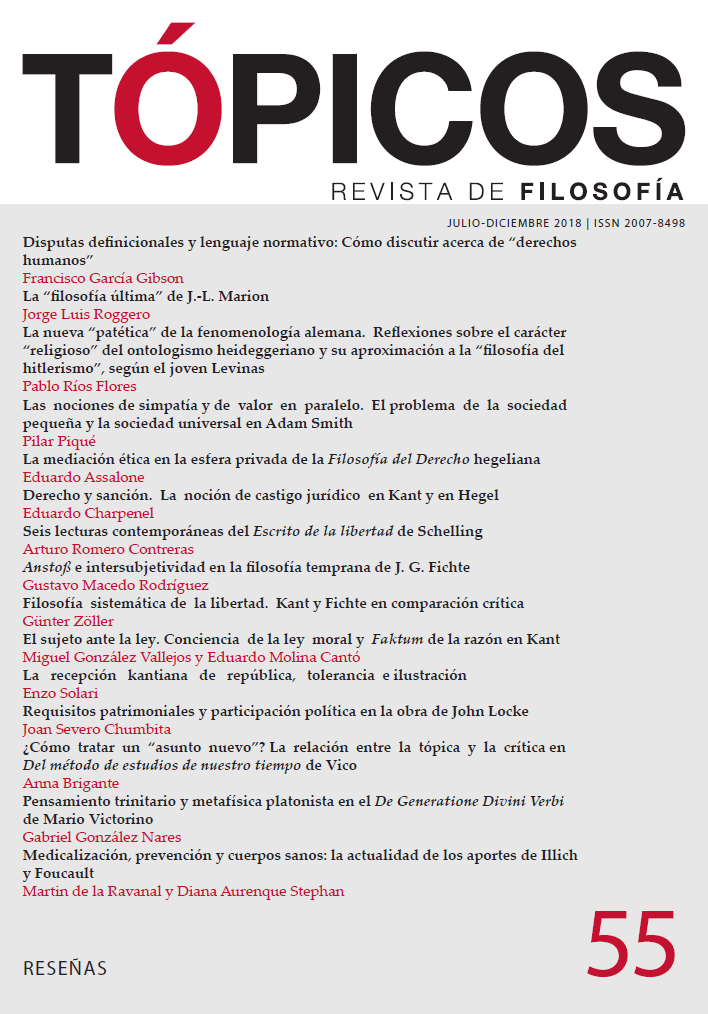Publicado 2018-06-08
Palabras clave
- Mario Victorino Africano,
- Plotino,
- Platón,
- Teología trinitaria,
- Uno
- Uno más allá de la substancia,
- Cristología ...Más
Cómo citar
Resumen
Mario Victorino Africano (n. ca. 300- m. 382 A.D.) representa elocuentemente el encuentro entre el cristianismo y el pensamiento platonista en el ambiente latino del siglo IV. En una de la obras de Victorino, el De Generatione Divini Verbi Victorino utiliza un aparato filosófico plotiniano para acercarse mejor a la teología cristiana en función de la solución de este problema trinitario: ¿Cómo genera algo el Uno sin dejar de ser Uno? El objetivo de este texto es analizar la convivencia del pensamiento teológico trinitario con la metafísica platonista plotiniana en el De Generatione Divini Verbi en función de dos temas principales: 1) los modos de ser, y 2) la explicación de la vida del Uno más allá de la substancia. Primero 1) daremos una breve semblanza de la vida de Mario Victorino, 2) después, analizaremos por qué el problema cristológico arriano necesita de una metafísica madura y sistemática para resolverse, 3) luego, repasaremos las soluciones que da Victorino en función del problema cristológico enfocándonos en los dos ejes mencionados, y 4) finalmente veremos las conclusiones de esta interacción entre teología y filosofía platonista mencionando la novedades que Victorino aporta a la comprensión de la metafísica platonista plotiniana.
Referencias
- Henry P. y Hadot P. (eds), Marius Victorinus, traités teologiques sur la Trinité, Sources chretiénnes, Vols 68, 69, París, 1960.
- Marius Victorinus Africanus, De Generatione Verbi Divini, en JP Migne (ed.), Patrologia Latina Cursus completus, Vol. 8, París, 1844.
- Mary T. Clark (ed.) Marius Victorinus, The theological treatises, The catholic University of America Press, St. Louis, 1981.
- Agustín, Confesiones, Trad. A.C. Vega, disponible en http://www.augustinus.it/spagnolo/confessioni/index2.htm
- Platón, República, Trad. A. Gómez Robledo, Bibliotheca scriptorum graecorum et romanorum mexicana, UNAM, México, 2007.
- Plotino, Enéadas, III, 8, Trad. J. Igal, Gredos, Madrid, 2009.
- Armstrong, A.H, The Cambridge history of later greek and early medieval philosophy, Cambridge University Press, Cambridge, 1967
- P. Hadot. What is ancient philosophy? Trad. M. Chase, Belknap Press, HUP, Massachussets, 2002, p. 239






